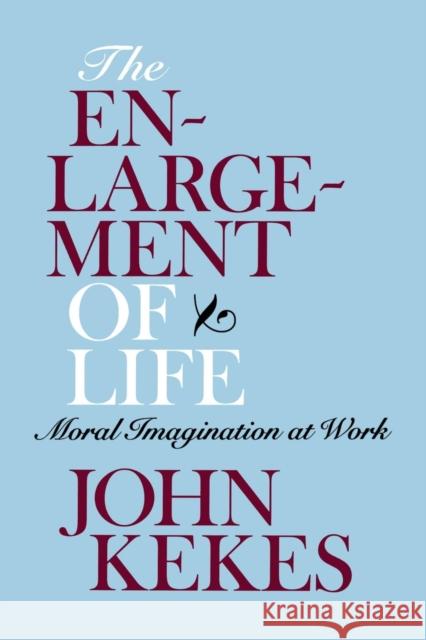The Enlargement of Life: Moral Imagination at Work » książka
The Enlargement of Life: Moral Imagination at Work
ISBN-13: 9780801476273 / Angielski / Miękka / 2010 / 256 str.
The Enlargement of Life: Moral Imagination at Work
ISBN-13: 9780801476273 / Angielski / Miękka / 2010 / 256 str.
(netto: 127,61 VAT: 5%)
Najniższa cena z 30 dni: 132,35
ok. 30 dni roboczych.
Darmowa dostawa!
Moral imagination, according to John Kekes, is indispensable to a fulfilling and responsible life. By correcting a parochial view of the possibilities available to us and overcoming mistaken assumptions about our limitations, moral imagination liberates us from self-imposed narrowness. It enlarges life by enabling us to reflect more deeply and widely about how we should live. The material for this reflection, Kekes believes, is supplied by literature. Each of the eleven chapters of the book focuses on a novel, play, or autobiography that exemplifies the protagonist's reflective self-evaluation. Kekes shows the enduring significance of these protagonists' successes or failures and how we might apply what they teach to our very different characters and circumstances.Kekes discusses John Stuart Mill's Autobiography, the Oedipus tragedies by Sophocles, Age of Innocence by Edith Wharton, Henry James's The Ambassadors and The Golden Bowl, Montaigne's Essays, a story by Herodotus, and Arthur Koestler's Arrival and Departure. Throughout, Kekes shows that moral thought must be concrete, not abstract; that good reasons for or against how we live and what choices we make are available but must be particular, not universal; and that the rigid separation of literature, psychology, and moral thought is detrimental to all three.











